Taking an unconventional route to aero
Time trial bike development has seemingly accelerated to supersonic rates as of late and a number of...
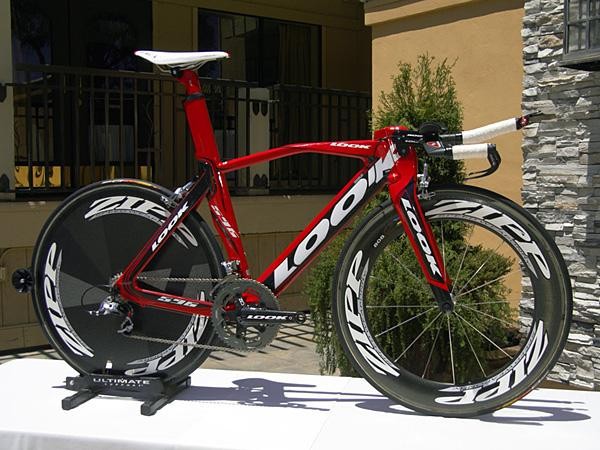
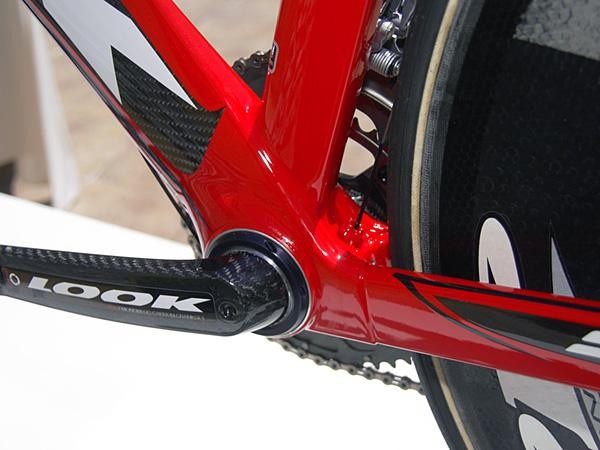
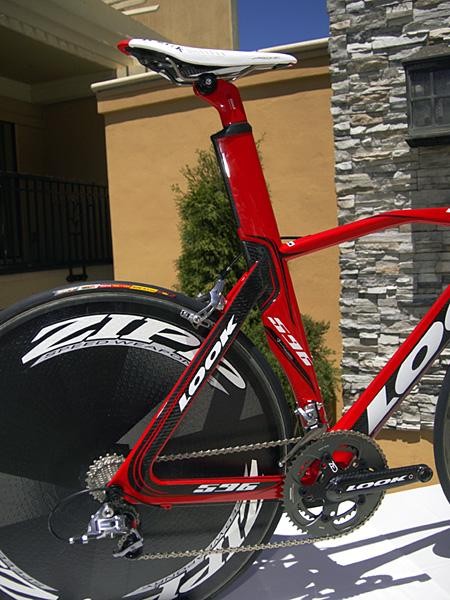
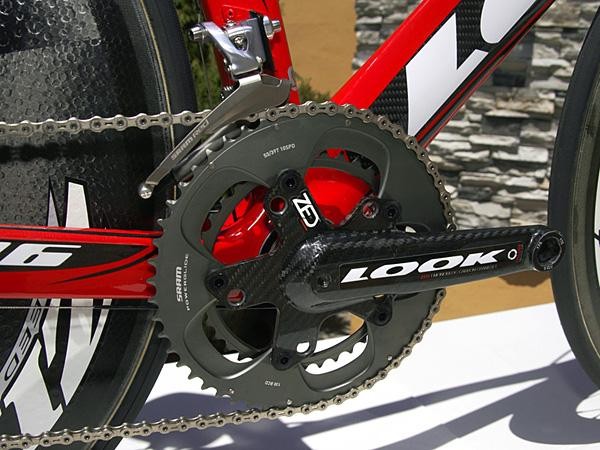
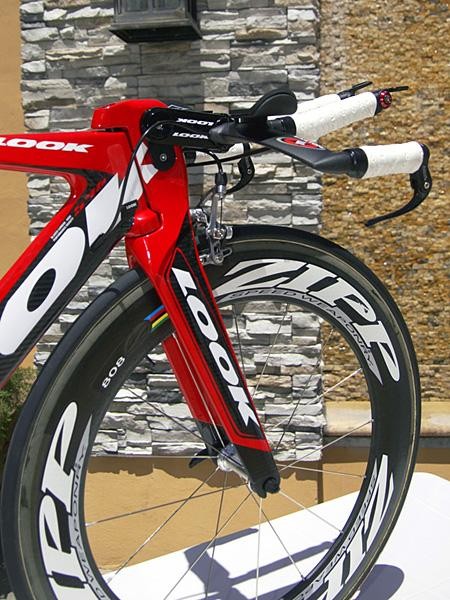
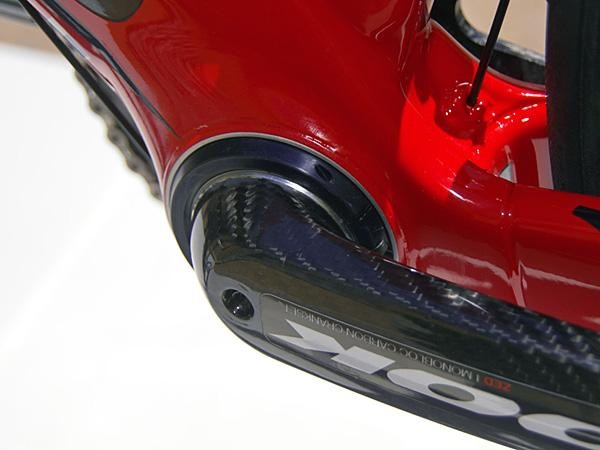
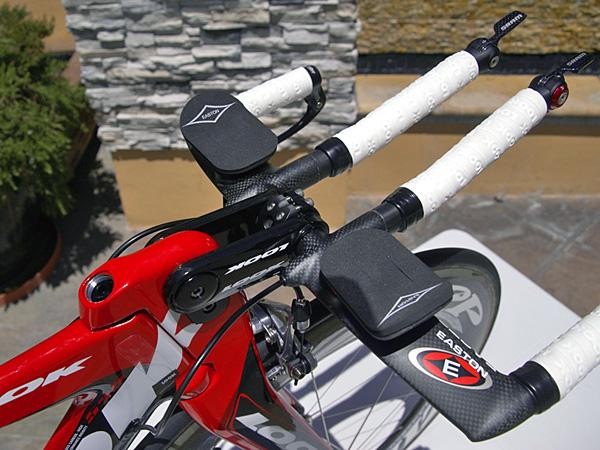
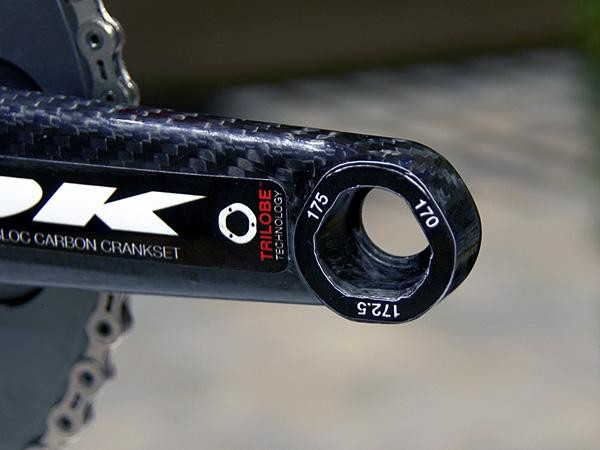
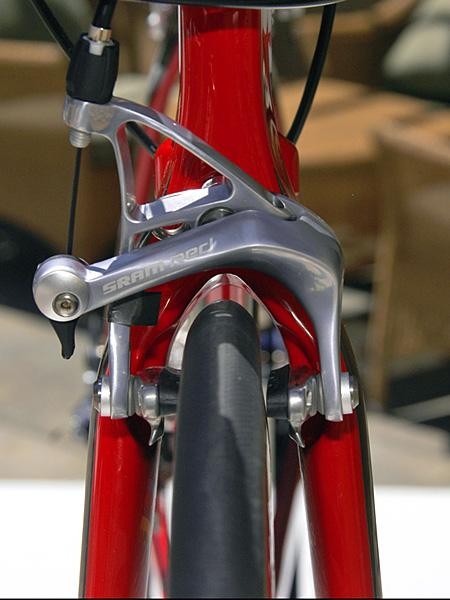
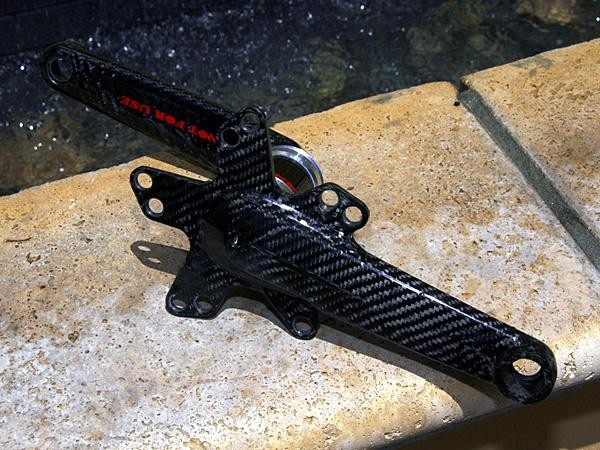
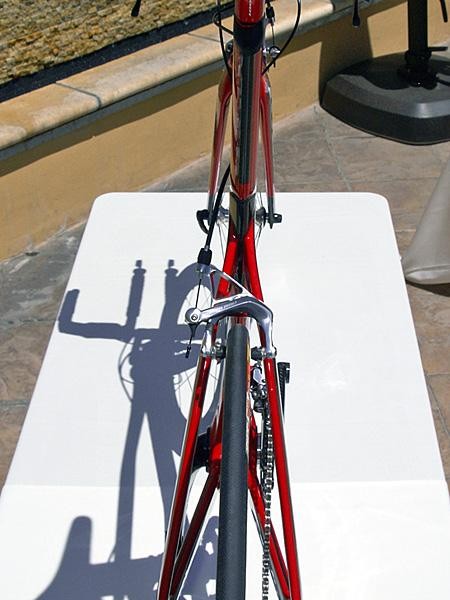
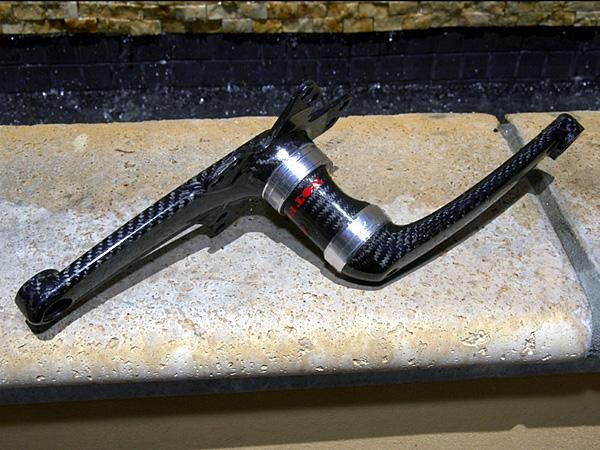
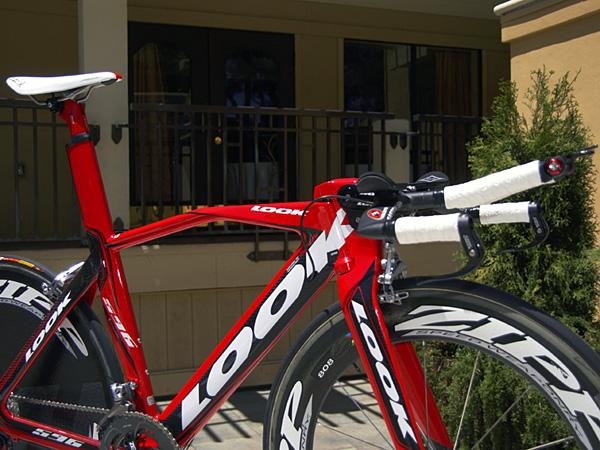
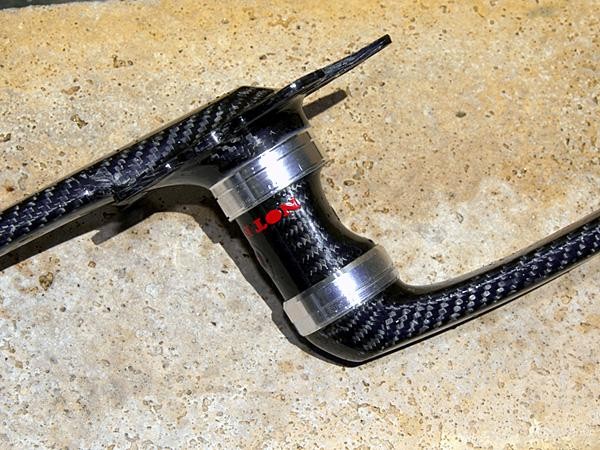
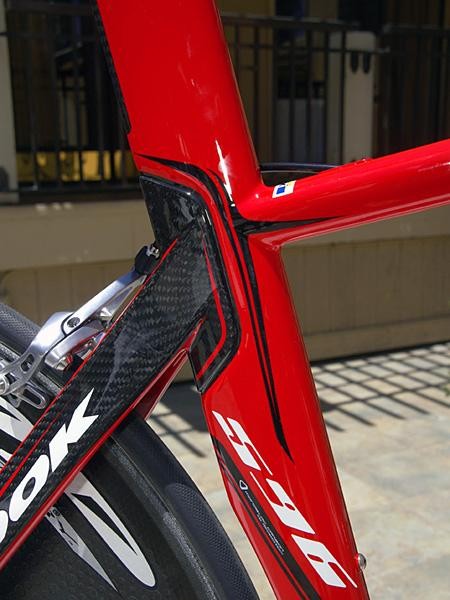
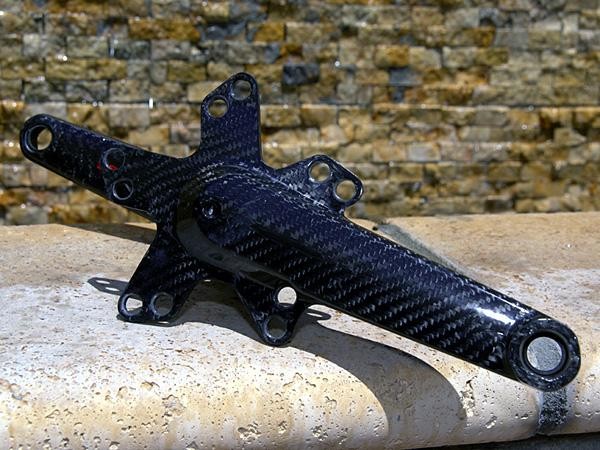
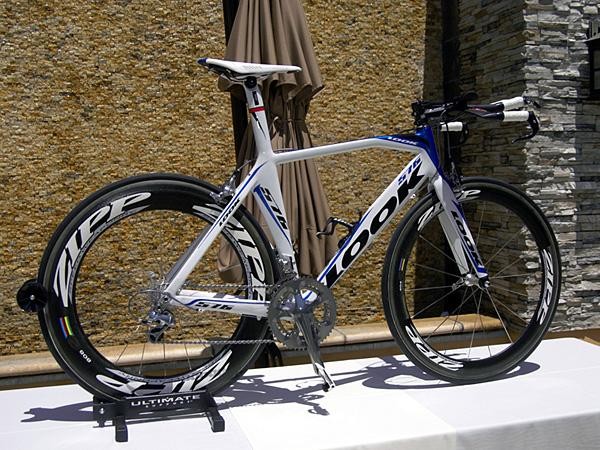
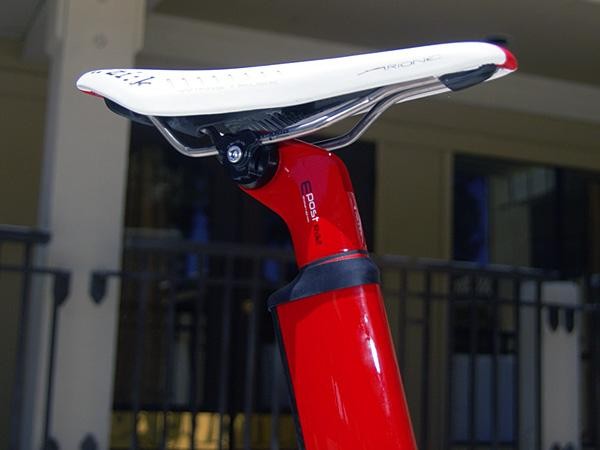
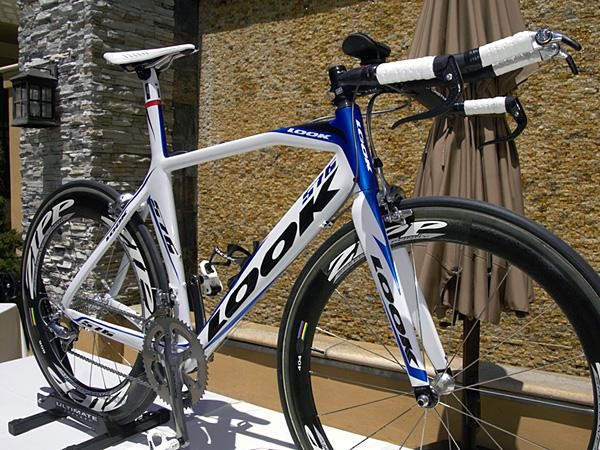
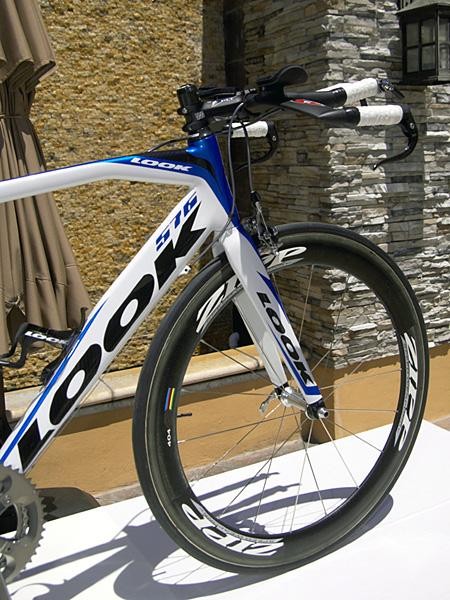




















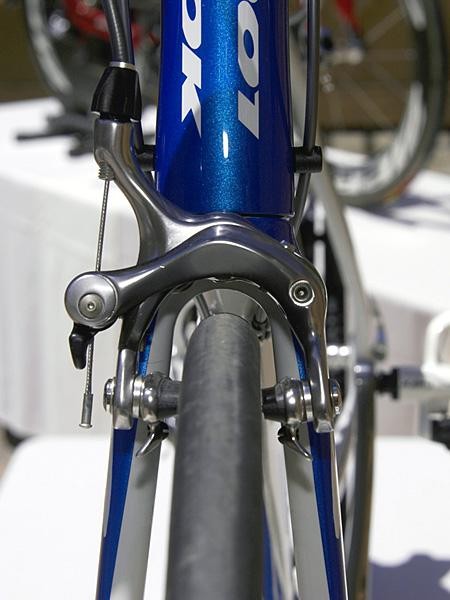
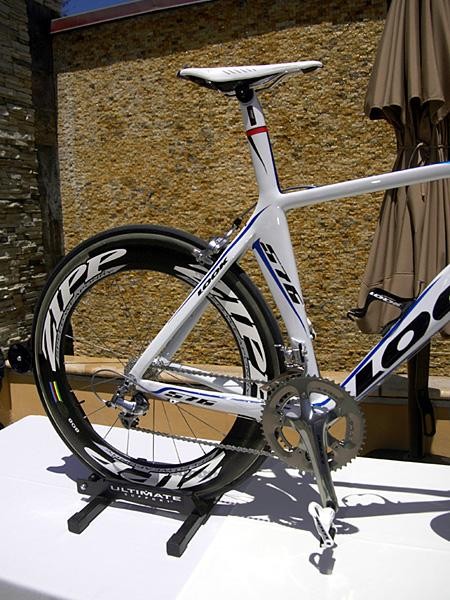
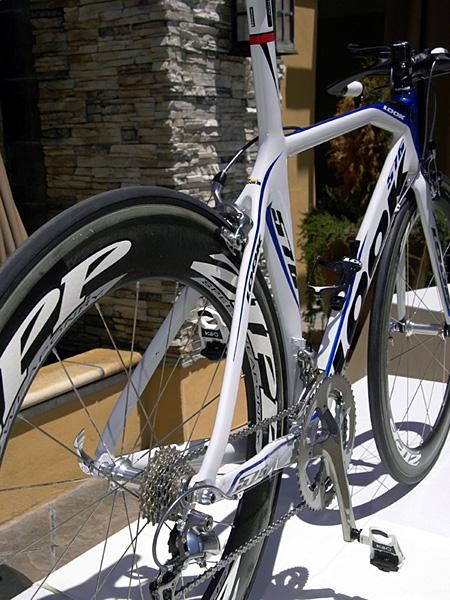
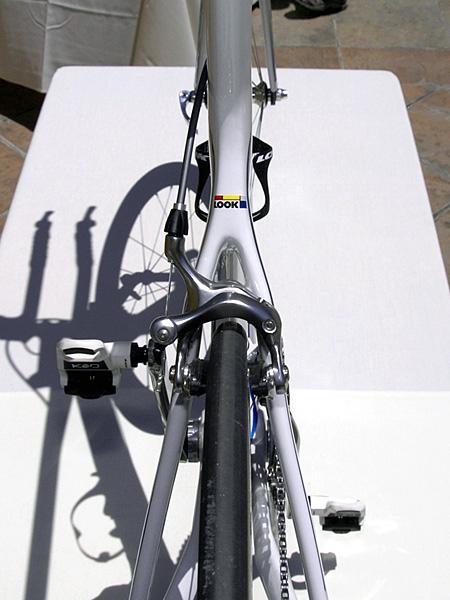
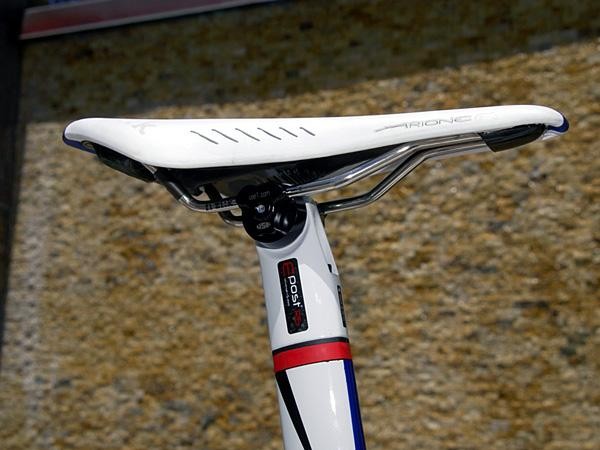
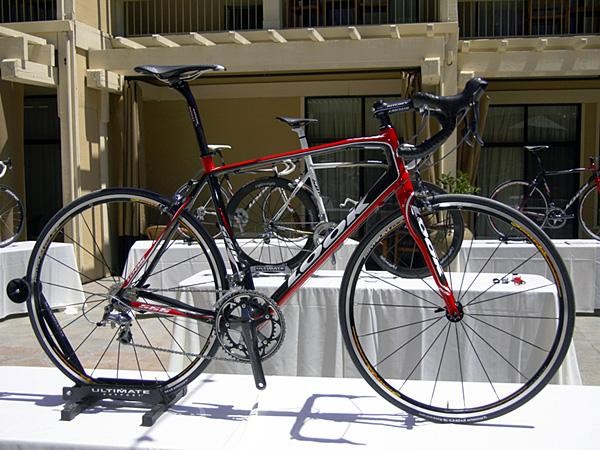
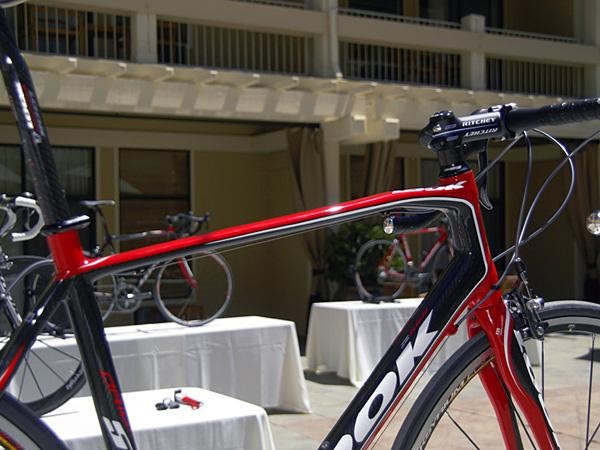
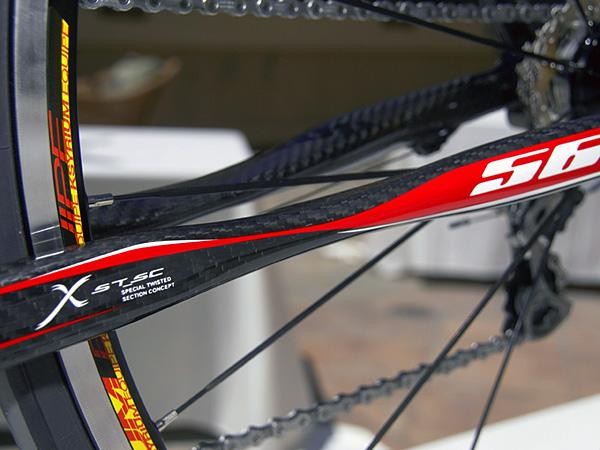
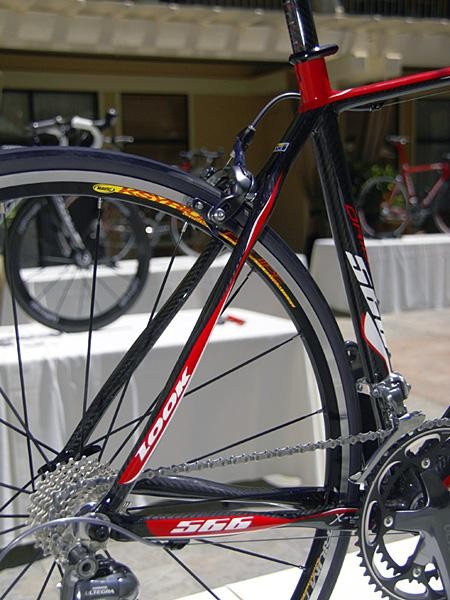
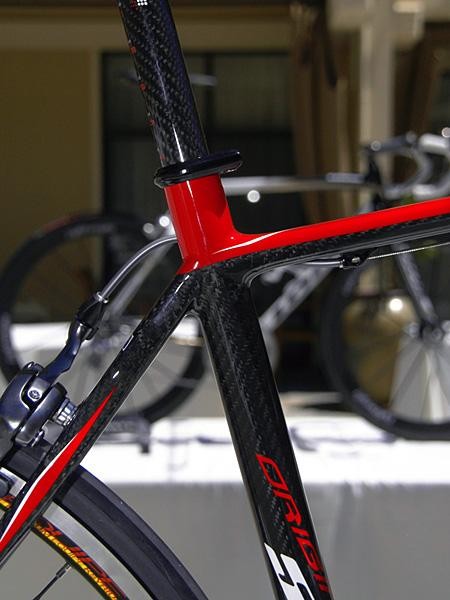
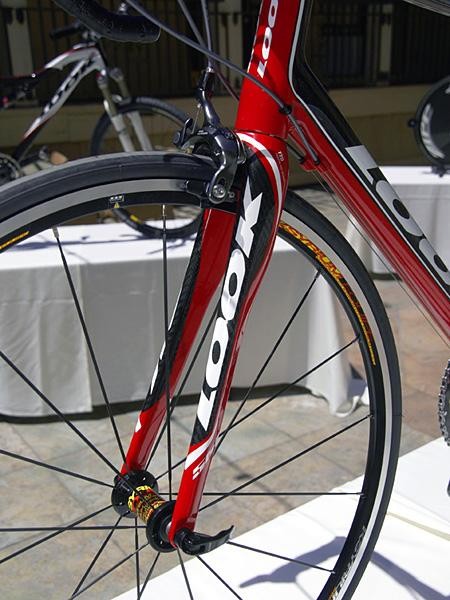
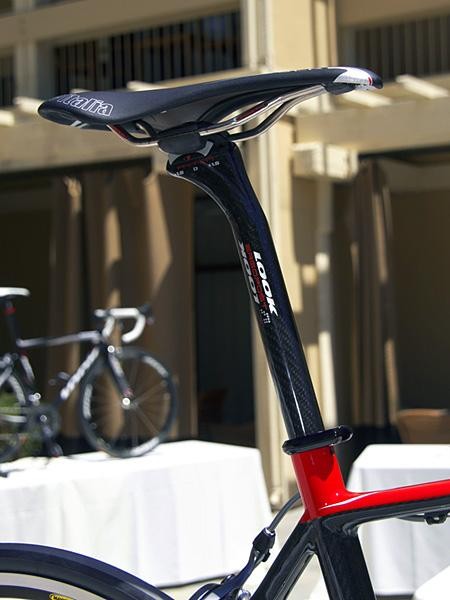
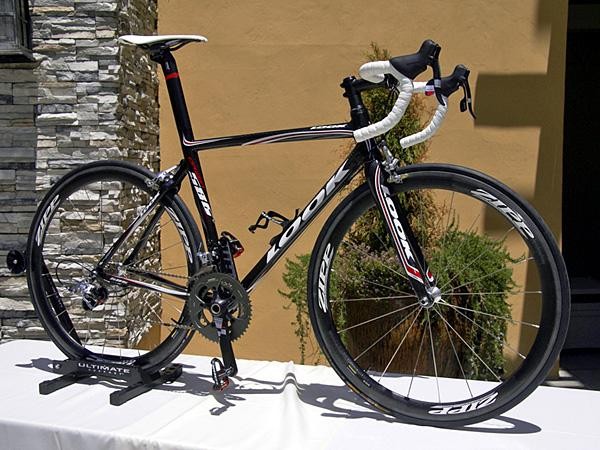
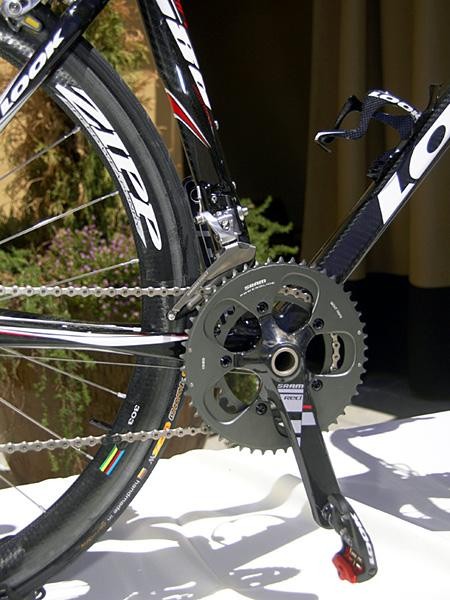
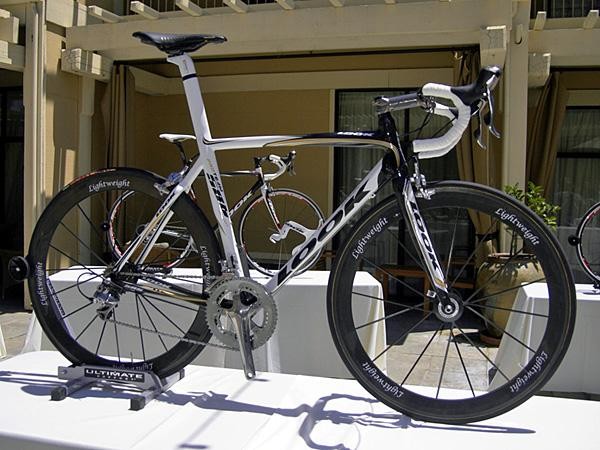
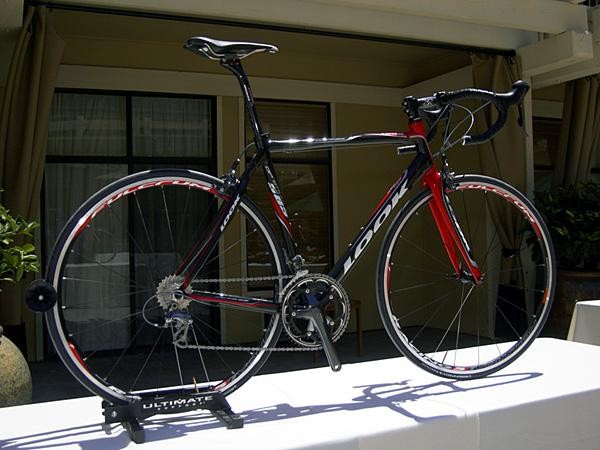
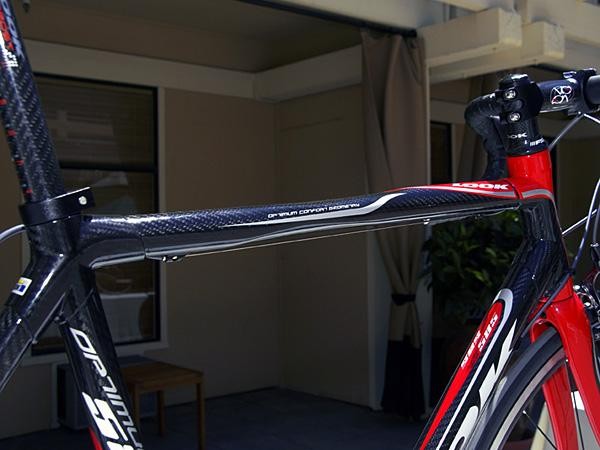
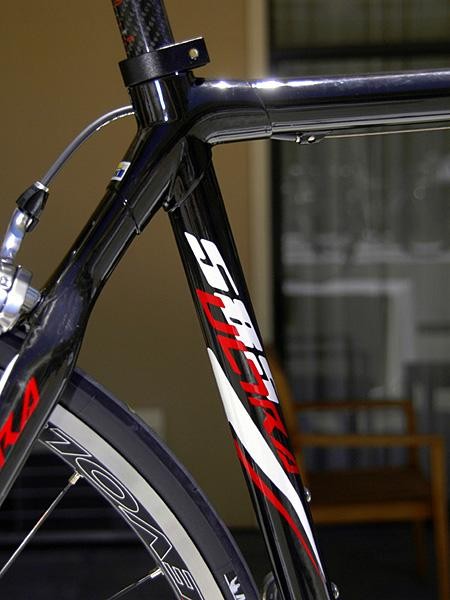
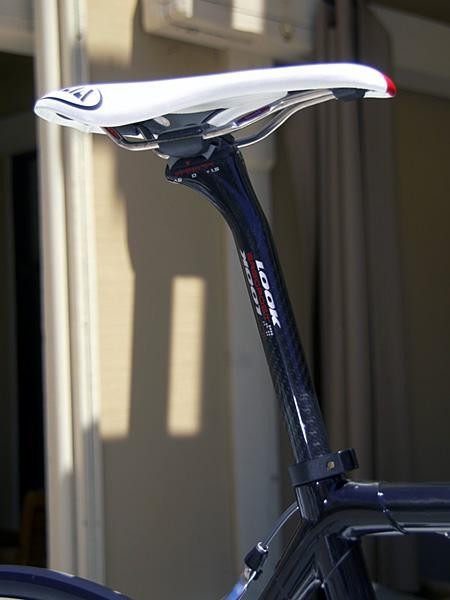
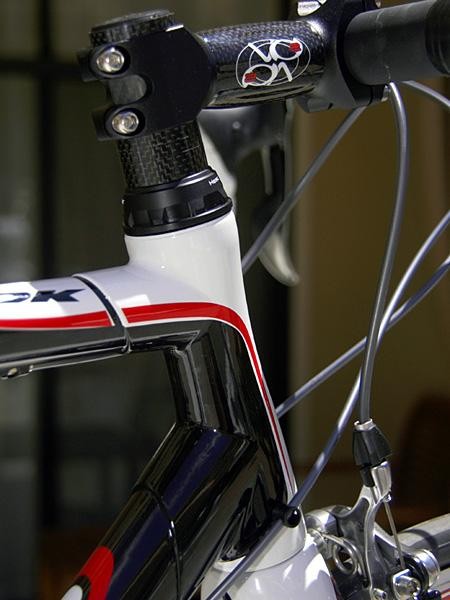
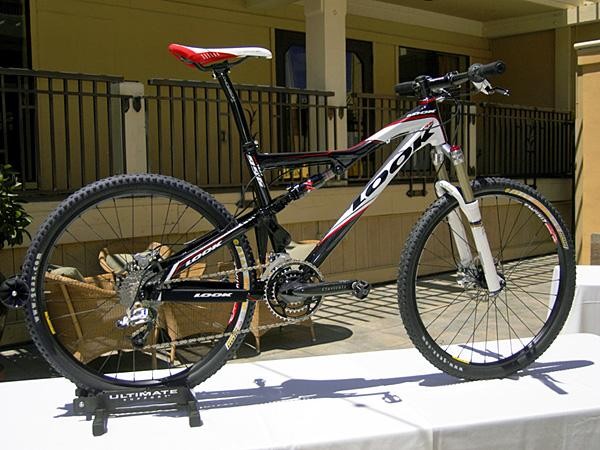
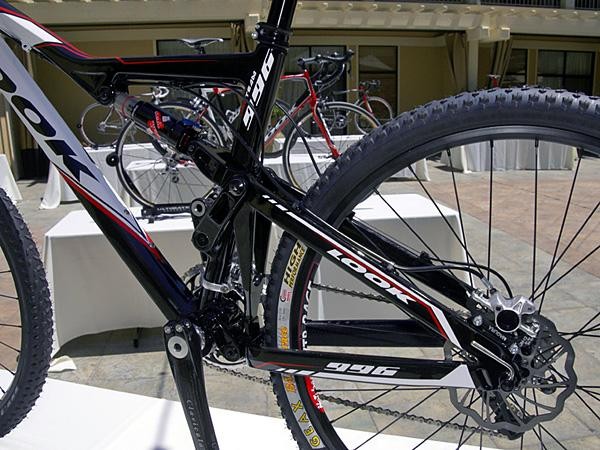
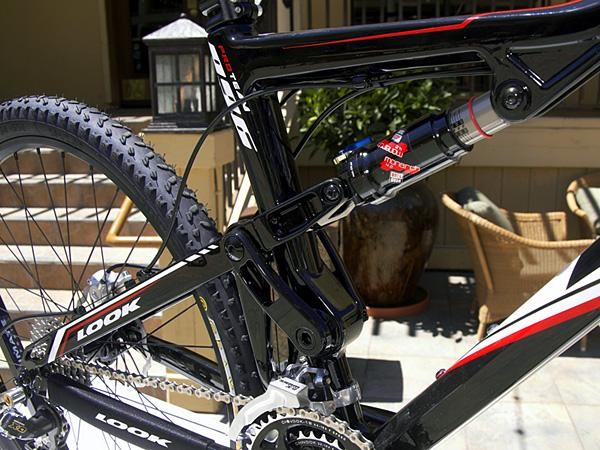
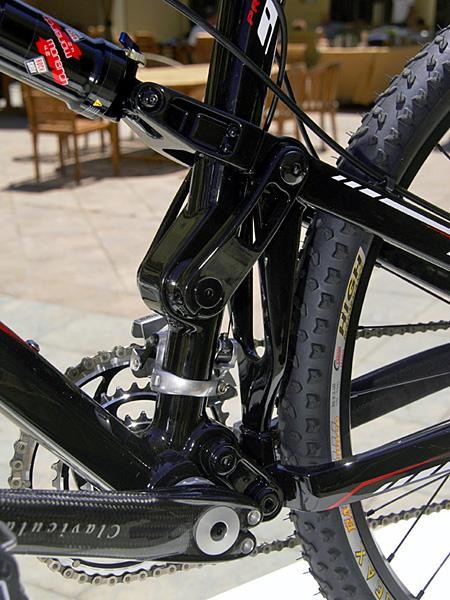
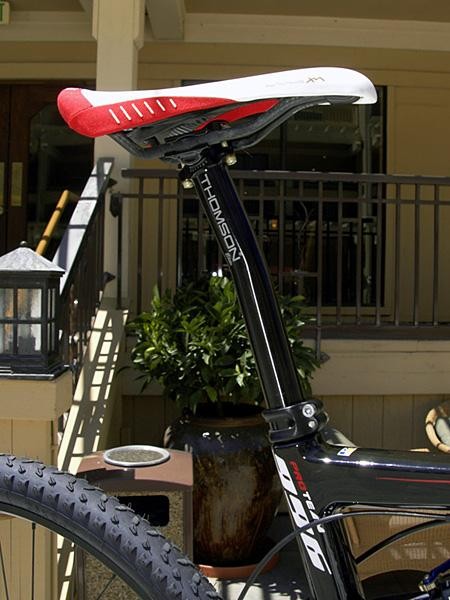
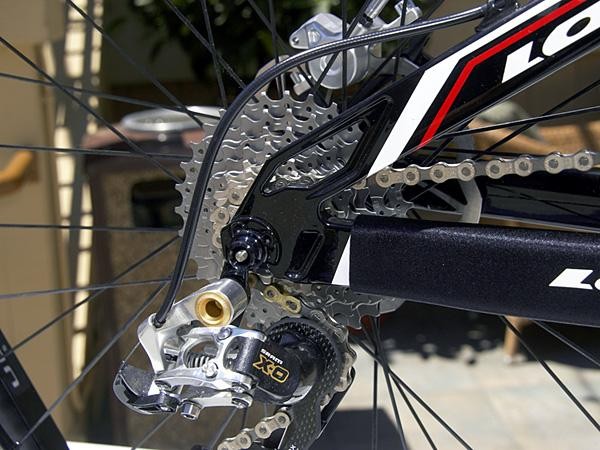
Tech feature: Look 2009 introduction, August 1, 2008
Time trial bike development has seemingly accelerated to supersonic rates as of late and a number of design elements have become increasingly routine: aero-profiled tubing, seat tubes with deep cut-outs, hidden brakes, fully-integrated forks and componentry, smooth lines. Yet Look has taken a somewhat unconventional approach with its latest speed machine, the 596.
First previewed at last year's Eurobike show, the new 596 does bear some common TT bike traits such as the deep-section down tube, seat tube and seat stays. However, instead of bringing the frame sections closer to the spinning wheels and reducing the gaps to the legal limit, Look has bucked the trend and added space both around their edges and sides.
Closer is better... or is it?
The key word from the previous statement is spinning. Look claims that tight clearances work well in the wind tunnel under static conditions but setting the wheels in motion creates high pressure drag in the confined spaces that actually make the bike slower. As a result, the seat stays and fork crown on the 596 are fairly wide-set and there's also more room around both wheels' circumference than we're used to seeing to let air easily flow through.
Unfortunately we have no easy way of verifying that claim (Look says its wind tunnel facility at the Magny Cours race track in France is perhaps the only place that can run a test where the wheels can be spun at a constant and controllable rate) but the idea is intriguing and might carry some merit. In fact, LeMans cars are fitted with fender louvers specifically to relieve the high pressure build-up that Look calls to attention here. Whether or not this matters at the slower speeds typically encountered in a time trial is another matter entirely but it's an intriguing idea nonetheless.
Regardless, one thing that can't be argued about the 596 is its substantial weight advantage over the outgoing 496 (which will still be available in track form). Claimed weight for frame and fork (but no headset) is just 1840g (4.06lb), knocking roughly half a kilo (1.1lb) from its predecessor while supposedly giving up nothing in terms of rigidity. Game on.
Get The Leadout Newsletter
The latest race content, interviews, features, reviews and expert buying guides, direct to your inbox!
A new level of integration
The front end of the 596 is fitted with an all-new version of Look's radical Monoblade fork. Just as on the 496 where it first used the concept, the front of the fork extends all the way up to the stem and acts as a fairing for the head tube (effectively increasing the aspect ratio beyond the UCI-mandated 3:1). On this new edition though, the entire unit is markedly deeper throughout and capped with a far lighter two-piece carbon stem that is adjustable in angle and available in four lengths.
The new Zed crank is where things get particularly interesting. This new setup, limited to the 596 for the time being, is similar in concept to BB30 in that it uses oversized bearings pressed directly into a standard-width bottom bracket shell. However, the Zed spindle is roughly 50mm in diameter (instead of 30mm) and the hollow carbon fiber arms and spindle are all molded as one piece. A slight depression in the spindle allows installers to snake the whole bit through the bottom bracket bearings and a threaded collar on the non-driveside holds it all together.
Mechanics can think of the Zed as an analogue to a one-piece steel BMX crank but even those who can't remember 'righty tighty, lefty loosey' will be able to appreciate that it's way lighter. Claimed weight with bearings and chainrings is just 604g and we'd expect nothing short of monstrous stiffness given the section sizes (Look claims double the stiffness-to-weight of a 7800-series Dura-Ace crankset).
Moreover, a clever integrated carbon spider allows for both standard 130mm and compact 110mm chainrings and Look's novel Trilobe pedal interface quickly adjusts to provide 170, 172.5 or 175mm effective crank lengths. Trilobe will only work with a special KeO pedal though, so those on other systems should ready themselves for the swap should they decide a 596 is in their future.
Naturally, Look has also capped the top of the 596 with its elastomer-cushioned E Post integrated seat mast design. The 596 will come stock with a 32mm-setback R32 version, thus keeping it UCI-legal, but users can swap in the adjustable E Post Ti or 5mm-offset R5 variants depending on the situation.
Official retail price for the 596 is US$4,999 which sounds rather insane until you consider that it includes the frame, fork, headset, integrated seatpost, stem, bottom bracket, crank and even pedals. Heck, that almost makes it a bargain.
Other new road models
Multisport athletes also get a new 576 model to whet their appetites complete with a tri-friendly 78° seat tube angle. The seat tube, down tube and seat stays get the usual deep-profile and Look has imbued the 576 with similarly wide-set front and rear ends as on the 596. A conventional fork replaces the 596's Monoblade design though, and the integrated seat mast is fitted with the nearly-straight E Post R5.
Frame weight is a competitive 1100g (small size, uncut mast) and pricing is attractive, too. Framesets will fetch US$1,999 and complete bikes with a Shimano 105/Ultegra mix will command an equally attractive US$2,999.
Speaking of attractive pricing, Look is also making a bigger push towards the lower end of the spectrum with its new (and surprisingly attainable) 566 road model. In keeping with that segment's usual demographic, the 566's carbon frame sports slightly more upright positioning that includes a slightly longer head tube.
Ride quality is also skewed a little more towards the softer end with its flattened stays and top tube coupled with a smoother-riding fork. Though noticeably softer than Look's competition-ready 595 and 586 models, first impressions are that the 566 is still a decent performance machine.
Perhaps more importantly, its fantastically upscale appearance well outstrips its relatively modest US$1,999 price tag (frame, fork and headset). And at just US$2,499 with SRAM Rival or US$2,999 with Shimano Ultegra SL, we expect the 566 to do quite well against some of the bigger brands out there.
What's new for the 595, 586 and 585, you ask? Not much, but that's hardly a bad thing. All three get new colorways (including the black, white and gold Pro Team scheme seen at this year's Tour de France under the Crédit Agricole team) and the 595 and 585 will come stock with Look's Head Fit headset system. No point messing with what isn't broken, we suppose.
More off-road for Look
Look's foray into the dirt world with its 986 carbon hardtail was apparently successful enough to warrant a full-suspension cousin. The new 996 comprises a monocoque carbon front triangle and an aluminum-and-carbon rear end joined through a pair of short alloy links. There's 100mm of travel on tap and claimed frame weight is a competitive 2.5kg (5.5lb) for a small frame with the included RockShox Monarch 4.2 rear shock.
Look describes the suspension performance as somewhat of a hybrid between VPP and DW-Link but not a direct copy of either (perhaps more to avoid patent disputes than anything else). Regardless, its self-described anti-squat kinematics supposedly eliminate the need for any shock platform meaning even though the Monarch is so-equipped, riders might not ever use it. Enduro cartridge bearings all around should keep the rear end fairly supple, too.
We didn't get a chance to sample the 996 during the official introduction but its beefy front triangle, stout linkages and fully enclosed rear end suggest a solid feel. Unlike the hardtail, the 996 uses a conventional seatpost in the thinking that full-suspension riders might occasionally have the need to drop their saddle depending on circumstances (we're not sure if this goes along with the modest 100mm of travel but so be it).
Geometry is decidedly cross-country oriented: 100mm forks will yield 69.7° and 72.2° head and seat angles, respectively, while an 80mm fork will steepen things up a bit to 70.5° and 73°.